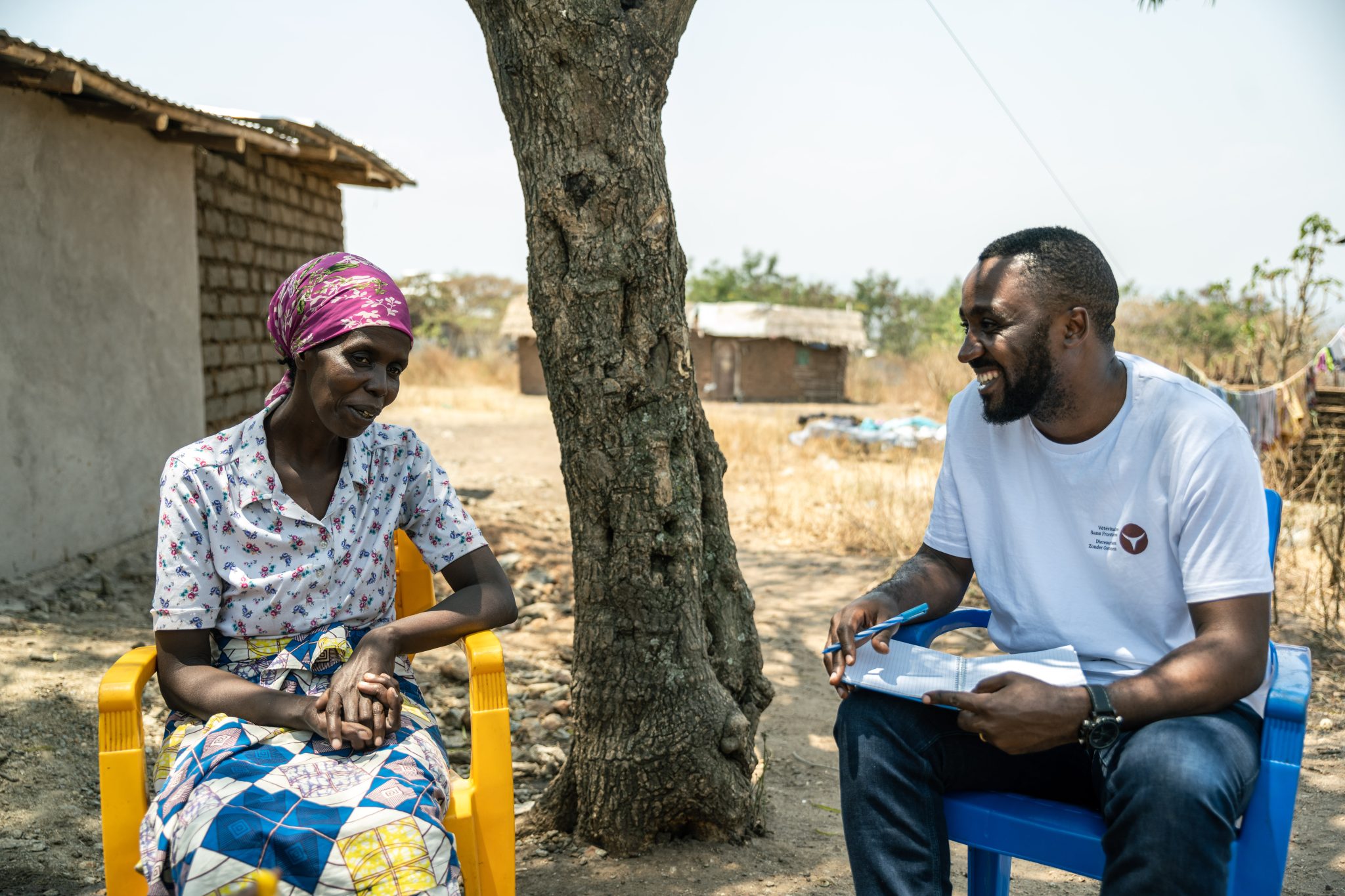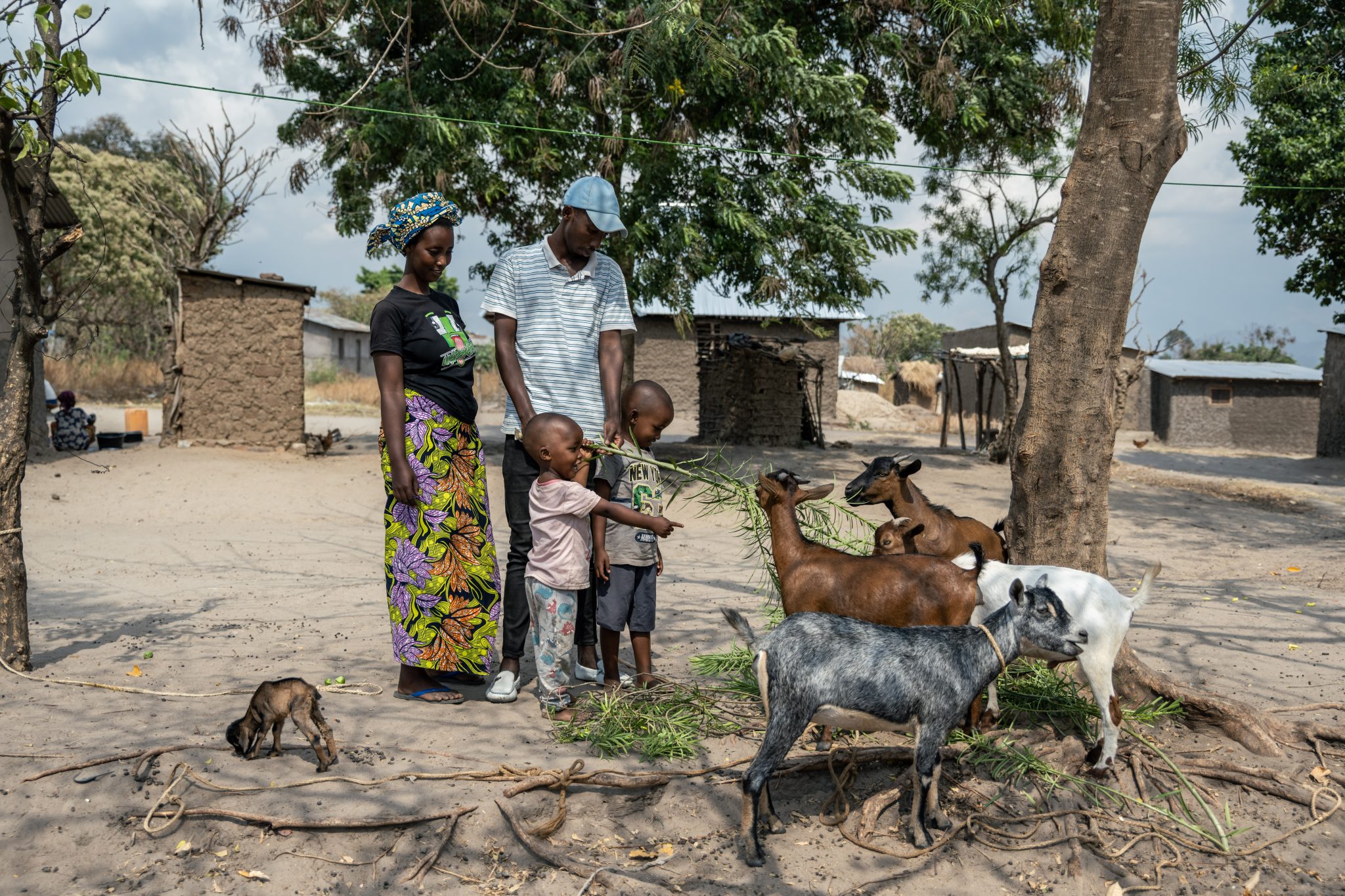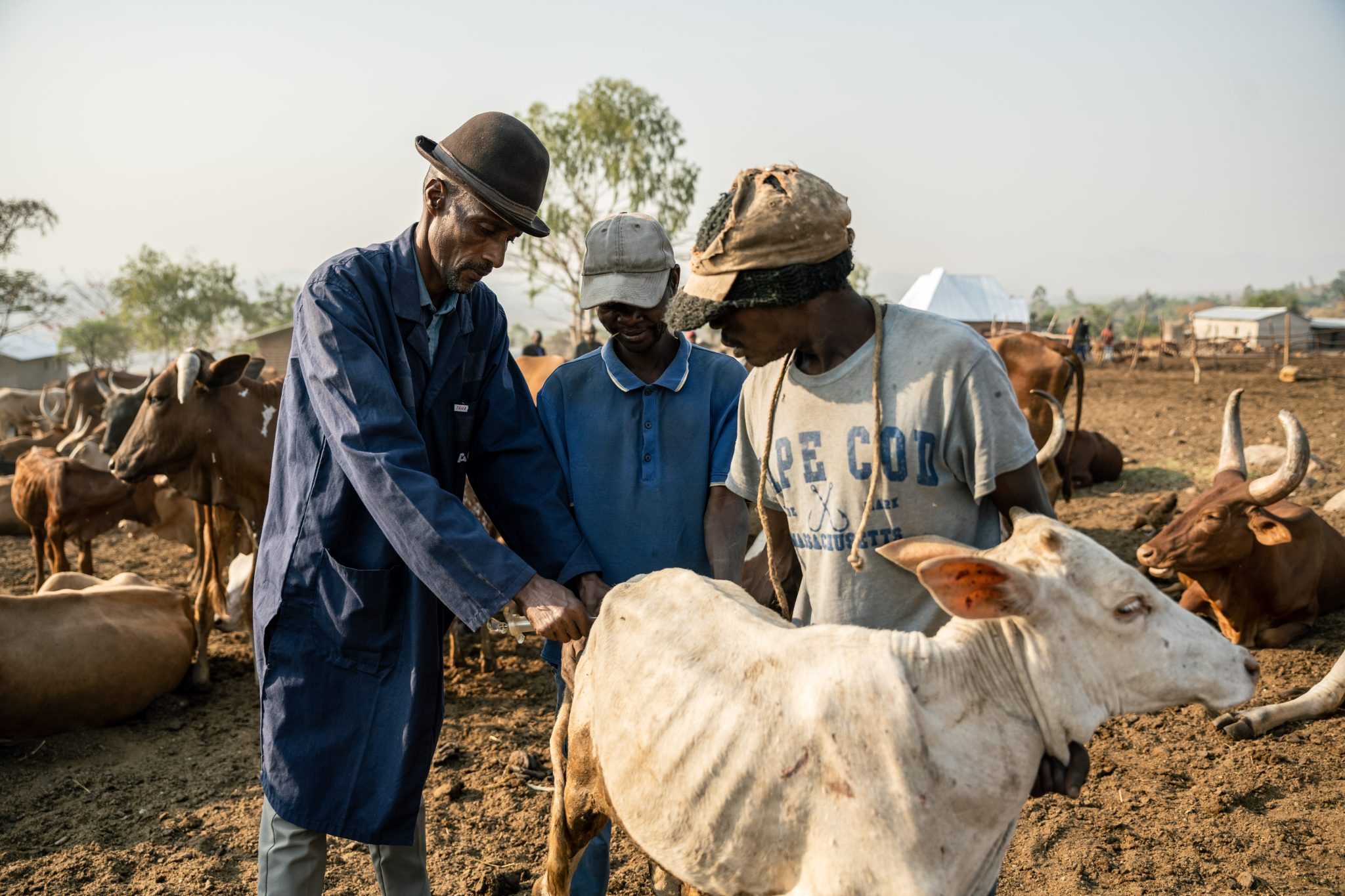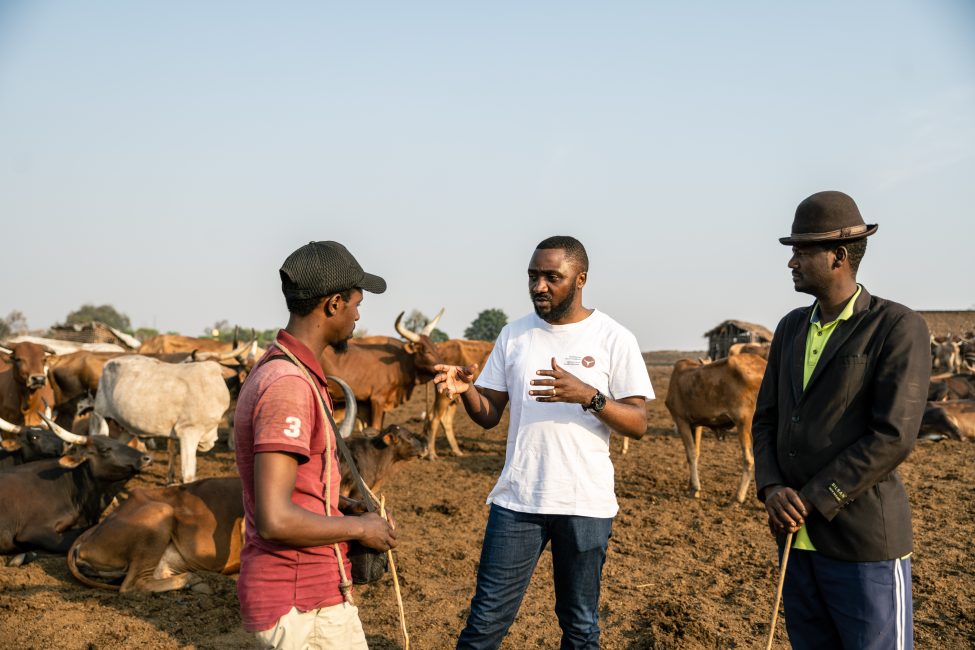For 30 years, the eastern DR Congo has experienced great instability due to the activity of armed groups and interethnic conflicts. Every year, South Kivu hosts large numbers of people who are obliged to flee from the violence. According to the International Organisation for Migration, the province recorded 5.6 million displacements in 2022 alone. In September 2023, it counted almost 1.3 million displaced persons in the province.
Located at about 85 kilometres from Uvira and Bukavu, on the middle plateaus of Uvira, the town of Lemera has around 170,000 residents. Between the summers of 2022 and 2023, more than 10,000 people arrived there in successive waves. Despite the difficult socio-economic conditions in the region, they were able to rely on the solidarity of their compatriots, who opened their doors to the newcomers. However, life in Lemera is difficult, and malnutrition is never far away.
After two years of activities in Bwegera, Vétérinaires Sans Frontières Belgium moved to Lemera to start up a new humanitarian programme there. Between now and November 2025, our team intends to offer direct support to almost 2,000 households, or around 14,000 people. 60% of them have been selected from among the displaced people. The others are from the most vulnerable sections of the local population.
More than a dozen activities are planned to meet their most urgent needs, while aiming for a degree of sustainability. The programme includes unconditional monetary assistance, the distribution of goats and concentrated animal feed, the distribution of yoghurt to fight infant malnutrition, the establishment and reinforcement of community animal health workers and the vaccination of livestock. In total, the impact of these activities should benefit more than 30,000 people. Our colleague Richard Maisha Barhabula, who is in charge of our humanitarian activities in the eastern DR Congo, explains.
Why was the decision made to leave Bwegera and move to Lemera? What are the specific features of this new intervention zone?

Richard Maisha Barhabula, humanitarian programmes manager for Vétérinaires Sans Frontières Belgium in South Kivu, talking to a displaced woman in Bwegera. © Arlette Bashizi
“We have come here to be closer to the displaced people. When we were in Bwegera, we realised that certain displaced people coming from the high plateaus could not adapt to the local temperature and were falling ill. From 2022 onwards, many of these displaced people came to Lemera, where the climate is similar to that of the highlands. However, there were few humanitarian players there. So the needs were great, mainly linked to food security and means of subsistence. Many of the people who had fled the high plateaus had been livestock keepers, herding cattle, sheep or goats. So most of them lost their entire livelihoods when they fled, either because they had to leave their herds behind, or because they were attacked by armed groups as they were fleeing. These groups tend to cut off the animals’ feet to prevent them from escaping.
Our intervention zone in Lemera is six times the size of the one in Bwegera, and our support is correspondingly greater. Lemera is a health area consisting of 26 large villages, but we couldn’t intervene everywhere. So we decided to target six villages among those who had the most displaced people: Lemera, Langala, Kidote, Katala, Mulenge, and Ndegu. Certain areas were excluded, for example because they are only accessible by making a day’s journey on foot, which would make it too complicated for us to intervene.
Despite the change of location, we were pleasantly surprised by the welcome we received here. People had heard about our work in Bwegera. That eased the start of our activities and our contacts with the local authorities.”
How do you adapt our interventions to a context like the one in Lemera?
“The activities always need to be adapted to the local context. In Bwegera, where we intervened between 2021 and 2023, we provided monetary assistance using mobile phones. This was impossible in Lemera because there are entire areas that have no mobile phone coverage. So we adapted by offering the same unconditional assistance in the form of cash. 400 households have already received two instalments of 110 dollars to meet their family’s needs. The final instalment will be paid out at the end of June. In total, more than 2,800 people are benefiting from this form of assistance.

To stimulate solidarity between neighbouring families, Vétérinaires Sans Frontières Belgium has selected 100 pairs of families who each receive three goats to care for together. © Arlette Bashizi.
We take advantage of the distribution days to organise other cross-cutting activities. For example, we offer training in financial management, dietary diversification or mechanisms to protect the community from insecurity.
In June, we will also be distributing goats to 200 families. Usually, these families give some of their goats’ kids to other families in need later on. In an emergency context, however, this solidarity chain principle is not ideal, because the programmes are short (usually two years), and we are not certain that we will be able to follow them up. This is why we have decided to give three goats to two families in Lemera in each case, including both displaced and host populations. We create pairs based on how close people live to each other in the village. This is a new approach to stimulate solidarity and cohesion, encouraging dialogue and sharing. In this case, there will be no transfer. When the goats have kids, the two families can decide together how to allocate the livestock.”
What are the challenges you face in setting up these activities?
“Our main difficulties are accessibility and insecurity. The intervention zones are fairly remote, and the roads are difficult. Sometimes, after heavy rainfall, the rivers overflow and cut off the roads. That disrupts our activities. The fact that the telephone network is not available everywhere doesn’t make life any easier either. Our team can’t use phones to contact the population. We have to use local channels to spread our messages.
We also need to be very careful about security. We ensure we are well informed of the situation before travelling anywhere. There are regular killings or rumours of attacks in certain villages. In those cases, we don’t take any risks, but we are obliged to report the activities.”
Where do you find your motivation to do this humanitarian work in spite of these difficulties?

Vétérinaires Sans Frontières Belgium calls upon community animal health workers based in the area to take care of the displaced people’s livestock. © Arlette Bashizi
“Even when we work in emergencies, our interventions are sustainable. When I go back to Bwegera, I might meet someone who received two or three pigs from us and now has 15. When I see how families have come on, this motivates me and gives me the courage to keep supporting other households. It’s the same for the community animal health workers. We find that they are intervening by themselves, developing beyond our activities. Seeing them become more resilient motivates our staff.
The fact that we are so well accepted by the community also gives me great satisfaction, as does the authorities’ recognition of our work. I’m proud to work for an organisation that is accepted and recognised for its expertise and professionalism.”
Vétérinaires Sans Frontières Belgium has been setting up activities to support livestock keeping and animal health in the eastern DR Congo since 2007. In the autumn of 2021, we also began implementing humanitarian activities there with the support of the Belgian government (Directorate-General for Development Cooperation and Humanitarian Aid). These activities are part of a multi-country programme being carried out in the Sahel (Niger and Burkina Faso) and in the region of the Great Lakes (Uganda and DR Congo).

